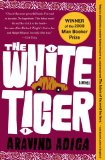Summary | Excerpt | Reading Guide | Reviews | Beyond the book | Read-Alikes | Genres & Themes | Author Bio

Tarun J. Tejpal is the editor of India's investigative news magazine, Tehelka (translated as "sensational"), which is known for exposing corruption; and, according to a 2009 BusinessWeek profile, is one of India's most powerful figures. In his latest novel, The Story of My Assassins – a hardboiled account of life on the fringes – he draws on his journalistic background to create a fictional panorama that questions perceptions of victimhood. In an unusual twist, Tejpal asks readers to consider the possibility that the criminals themselves may be victims of a complex plot against them.
At the start of the tale, the narrator, who is a journalist at a floundering publication in New Delhi, hears that he has been targeted, for what he will later assume to be his controversial reportage, and that his five would-be assassins have been apprehended. He is quickly whisked under police protection, without knowing whom or what he is being protected from. He gradually learns about the accused through the efforts of his mistress, Sara, a woman impassioned by social justice, who believes the men are innocent decoys for darker political motivations. Side stories feature interludes with Sara (replete with expletive-laden sex), the struggle to keep the magazine afloat by appealing to investors, and consultations with a spiritual guru, among others, all of which can be summed up in the narrator's remark on the novel's events: "There was no big picture. There were no grand connections. There were only endless small pieces…" While there may be no big picture here, at over five-hundred pages, Tejpal works with a large canvas and even larger themes of invisibility, bureaucracy, and the narrator's self-absorption. But rather than exploring the actual reasons or details behind the assassination attempt, he focuses on the psychology of each of the accused characters. The resulting kaleidoscopic structure allows readers to view them as multifaceted men, not all of whom set out on the wrong path, and to imagine India's lower castes as too immense to summarize and too heartbreaking to ignore.
Most of The Story of My Assassins, explores the lives of the five men, from childhood to adulthood. Though their specific backgrounds vary – one hails from a line of artisans, another from a village of snake charmers – they share the emotional hardening that sometimes arises after experiencing unfortunate events. The novel includes copious violence, such as police brutality, the rape of family members, and sodomy. Despite such cruelties, loyalties and tender moments arise, as do surprisingly ordinary pursuits that reveal the humanity within the assassins. One man has a love of animals, and another is a talented woodcarver. Tejpal especially shines at imbuing each of the men with their own liveliness; they do not emerge as uniform criminal types.
This is not a thriller with easy resolutions and clear culprits. Instead, Tejpal creates a realistic portrait of a society plagued by abuses of power, poverty and village tensions. He largely succeeds in challenging readers to not only dwell in uncomfortable emotional terrain, but to push beyond those initial, visceral responses to appreciate the finer details of his story.
Despite the consistent thread of dark material, one does not leave The Story of My Assassins feeling that little has changed. While the narrator does not pity the assassins, and is largely unmoved by their stories, believing that criminals are criminals, something essential within him has softened by the end. Tejpal deftly pushes his narrator to step away from his own concerns, proving another character, who had remarked "Most of the time we are like ghosts moving in the mist. We can barely find ourselves, leave alone others," momentarily wrong. The narrator makes an intimate, important choice. What had grown into a portrait of India's underworld returns to the personal, as though to say that hope, however small, begins at home.
![]() This review was originally published in The BookBrowse Review in October 2012, and has been updated for the
August 2013 edition.
Click here to go to this issue.
This review was originally published in The BookBrowse Review in October 2012, and has been updated for the
August 2013 edition.
Click here to go to this issue.

If you liked The Story of My Assassins, try these:

by Aravind Adiga
Published 2008
Balram Halwai is a complicated man. Servant. Philosopher. Entrepreneur. Murderer. Balram tells us the terrible and transfixing story of how he came to be a success in life - having nothing but his own wits to help him along.

by Vikram Chandra
Published 2008
Vikram Chandra's novel draws the reader deep into the life of Inspector Sartaj Singh—and into the criminal underworld of Ganesh Gaitonde, the most wanted gangster in India. It is is a story of friendship and betrayal, of terrible violence, of an astonishing modern city and its dark side.
Your guide toexceptional books
BookBrowse seeks out and recommends the best in contemporary fiction and nonfiction—books that not only engage and entertain but also deepen our understanding of ourselves and the world around us.